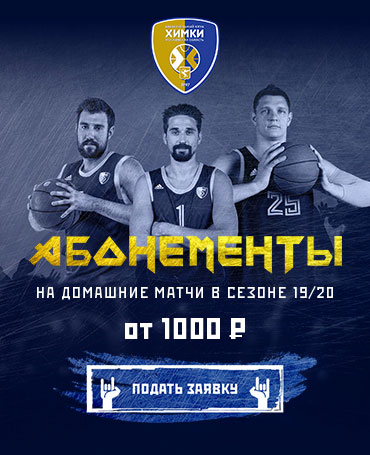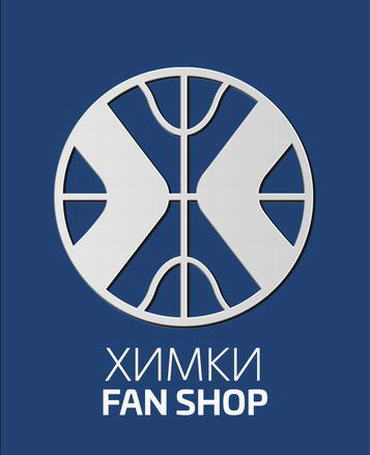Next steps with the Spanish national team26 september 2010
In his personal blog, the head coach of BC Khimki Sergio Scariolo speaks about wonderful game of our team agianst Kaserta and discusses the future of Spanish National team.
Finally I can get back in touch with you, after the brilliant game played yesterday by Khimki which allowed us to pass the first of the Euroleague’s qualifying rounds.
I have received a few questions from some fans regarding the World Championship and the post-Championship activity.
Considering that we aren’t in a phase of urgent decisions to be taken (like for example when you are close to playing official games or when a contract is expiring), the first few days were dedicated to rest and mental relax after the non positive (from a sporting perspective) experience in the World Championship, while I also restarted club activity with Khimki, with which we had to get ready in a very short time for a difficult qualifying round in the Euroleague.
In parallel with a psychological and environmental analysis, we have started a more technical screening, reviewing each and every World Championship’s match, studying data and statistics, starting with splitting the games in three groups:
First group: games vs. France, Lithuania, Greece and Serbia.
Second group: games vs. Canada, Lebanon and New Zealand
Third group: games vs. Slovenia and Argentina
This is because we reckon that the psychological attitude of the players in each of the three groups was so different that we want put the collected data into perspective.
I am receiving many reports from my staff, each one on a very specific subject: offense, defense, big men, external players, physical performance, etc.
Finally, I am due to receive the analysis performed after each match (once again using the three groups split mentioned above) for analyzing the game situations that have worked better, the ones that worked less: i.e. how successful has been our direct screen offense, what results our low post offense produced with a big man or an external player, what performance we had in transition when we played with a lot of passes as well as when we used more penetrations; and defensively also: how did our defense performed in the different situations we were facing during games, on different types of screens, zone defense, etcetera. Those are the most interesting and important statistics, because they give us an exact dimension of what has worked and what didn’t in our offensive and defensive systems and what we will have to modify in the future.
We will also analyse the performance of different lineups, and specifically how long different lineups have been on the court and their performance; this type of analysis needs to be done with accuracy and data in hand, because surprises can appear: for example, I remember that in the match against Lithuania it was said that there was the feeling that the "second lineup" had been on the court for about 10 consecutive minutes in the second half with a significant negative break. In reality official data provided by FIBA has given us a different picture: the players who weren’t part of the starting five have been on the court for 2'45” between the end of the third and the beginning of the fourth quarter, with a partial score of just 7-9.
After finishing this analysis we will draw accurate and documented conclusions, which will be presented to the presidency and the sporting management of the Spanish basketball federation, and only afterwards will decide which ones will be made public, as there will obviously be parts of it, especially those relating to individual and personal analysis of the players’ performance, that we consider more appropriate to remain confidential within the Federation.
Once finished this, we will start organising the monitoring of the players of interest to the national team for the 2011 European Championship that will take place in Lithuania.
There will be, as usual, a variable group of between 20 and 30 players, which will be divided into 2 or 3 different interest groups with different criteria (practically seniority within the national team and their position on the court).
The day after each and every game I will get for each player statistics and videos of all the minutes that these players have been on the court, previously filtered out of any breaks and pauses.
Besides the fact that we will anyway follow the games being aired on TV in the first month of the Spanish championship, we will begin this monitoring phase starting from the second month of the season because we want the players to work off preseason workloads, to adapt to their new teams, to get used to new situations, practically we want to allow them to reach a standard performance level, which never happens in the first weeks of activity.
Finally, in parallel to this, we will be rolling out a plan for the preparation of the European Championship, next summer: location, trainings, the friendly games’ tour of Spain, where as usual we will have to match the sporting requirements with our role of promoting basketball in Spain.
The activity of the head coach and his staff doesn’t stop, as you have seen, even though not in a visible way for most of you: the professionalism and the passion for this job keep us busy every day (even if not with the intensity of when the team is competing), but always with some time dedicated to analysis and study.
I have received a few questions from some fans regarding the World Championship and the post-Championship activity.
Considering that we aren’t in a phase of urgent decisions to be taken (like for example when you are close to playing official games or when a contract is expiring), the first few days were dedicated to rest and mental relax after the non positive (from a sporting perspective) experience in the World Championship, while I also restarted club activity with Khimki, with which we had to get ready in a very short time for a difficult qualifying round in the Euroleague.
In parallel with a psychological and environmental analysis, we have started a more technical screening, reviewing each and every World Championship’s match, studying data and statistics, starting with splitting the games in three groups:
First group: games vs. France, Lithuania, Greece and Serbia.
Second group: games vs. Canada, Lebanon and New Zealand
Third group: games vs. Slovenia and Argentina
This is because we reckon that the psychological attitude of the players in each of the three groups was so different that we want put the collected data into perspective.
I am receiving many reports from my staff, each one on a very specific subject: offense, defense, big men, external players, physical performance, etc.
Finally, I am due to receive the analysis performed after each match (once again using the three groups split mentioned above) for analyzing the game situations that have worked better, the ones that worked less: i.e. how successful has been our direct screen offense, what results our low post offense produced with a big man or an external player, what performance we had in transition when we played with a lot of passes as well as when we used more penetrations; and defensively also: how did our defense performed in the different situations we were facing during games, on different types of screens, zone defense, etcetera. Those are the most interesting and important statistics, because they give us an exact dimension of what has worked and what didn’t in our offensive and defensive systems and what we will have to modify in the future.
We will also analyse the performance of different lineups, and specifically how long different lineups have been on the court and their performance; this type of analysis needs to be done with accuracy and data in hand, because surprises can appear: for example, I remember that in the match against Lithuania it was said that there was the feeling that the "second lineup" had been on the court for about 10 consecutive minutes in the second half with a significant negative break. In reality official data provided by FIBA has given us a different picture: the players who weren’t part of the starting five have been on the court for 2'45” between the end of the third and the beginning of the fourth quarter, with a partial score of just 7-9.
After finishing this analysis we will draw accurate and documented conclusions, which will be presented to the presidency and the sporting management of the Spanish basketball federation, and only afterwards will decide which ones will be made public, as there will obviously be parts of it, especially those relating to individual and personal analysis of the players’ performance, that we consider more appropriate to remain confidential within the Federation.
Once finished this, we will start organising the monitoring of the players of interest to the national team for the 2011 European Championship that will take place in Lithuania.
There will be, as usual, a variable group of between 20 and 30 players, which will be divided into 2 or 3 different interest groups with different criteria (practically seniority within the national team and their position on the court).
The day after each and every game I will get for each player statistics and videos of all the minutes that these players have been on the court, previously filtered out of any breaks and pauses.
Besides the fact that we will anyway follow the games being aired on TV in the first month of the Spanish championship, we will begin this monitoring phase starting from the second month of the season because we want the players to work off preseason workloads, to adapt to their new teams, to get used to new situations, practically we want to allow them to reach a standard performance level, which never happens in the first weeks of activity.
Finally, in parallel to this, we will be rolling out a plan for the preparation of the European Championship, next summer: location, trainings, the friendly games’ tour of Spain, where as usual we will have to match the sporting requirements with our role of promoting basketball in Spain.
The activity of the head coach and his staff doesn’t stop, as you have seen, even though not in a visible way for most of you: the professionalism and the passion for this job keep us busy every day (even if not with the intensity of when the team is competing), but always with some time dedicated to analysis and study.



